Business
Follies of the Madmen #291
Rockabilly, R&B Sharpie the Parrot is an authority on shaving. Or maybe you would pay more attention to Sharpie's barbershop-quartet incarnation.
Posted By: Paul - Sun Aug 14, 2016 -
Comments (0)
Category: Anthropomorphism, Business, Advertising, Products, Cartoons, 1950s, Facial Hair
Follies of the Madmen #290
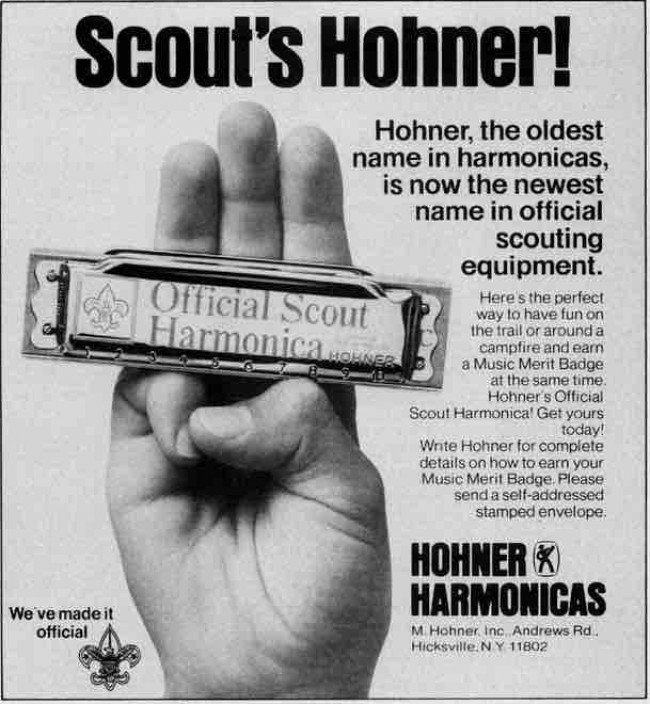
Worst. Pun. Ever.
Original ad here.
Posted By: Paul - Fri Aug 05, 2016 -
Comments (1)
Category: Business, Advertising, Products, Music, 1980s, Puns and Other Wordplay
Follies of the Madmen #289
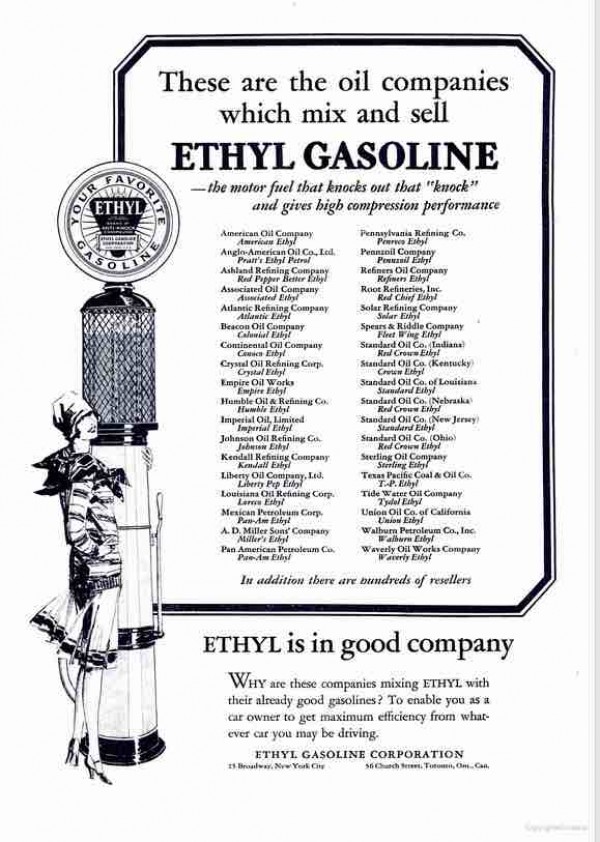
Erotic embrace of gasoline pump by 1920s woman indicates America's love affair with cars dates to earliest era.
Original ad here.
Posted By: Paul - Sat Jul 30, 2016 -
Comments (3)
Category: Business, Advertising, Products, Motor Vehicles, Public Indecency, 1920s
Follies of the Madmen #288
This was not a model of car that had nine lives.
Posted By: Paul - Wed Jul 13, 2016 -
Comments (6)
Category: Business, Advertising, Products, Cats, 1960s, Cars
Follies of the Madmen #287
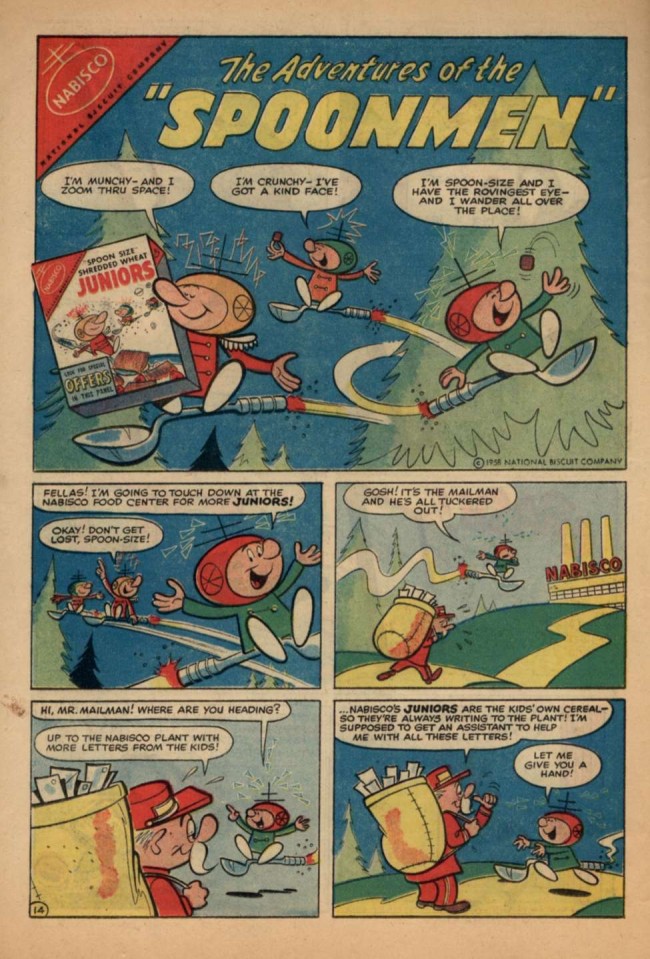
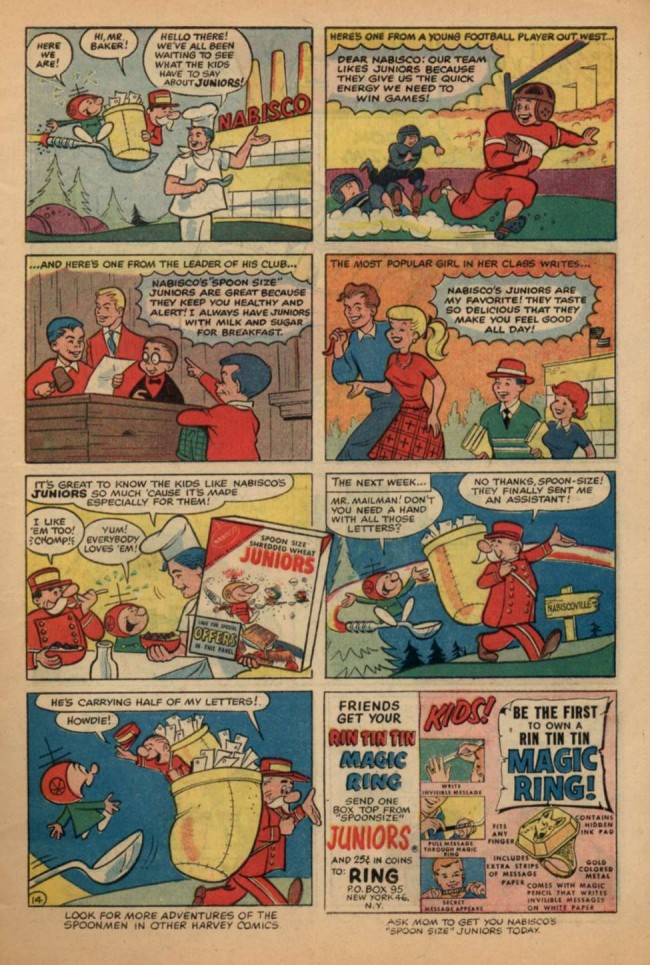
Click to enlarge.
Original images here. (Pages 10 & 11.)
Posted By: Paul - Tue Jul 05, 2016 -
Comments (3)
Category: Business, Advertising, Products, Food, Spaceflight, Astronautics, and Astronomy, Comics, 1950s
Follies of the Madmen #286
Lots of goofy stuff here.
First commercial: who's the publisher for that special Mom propaganda book?
Second and third commercials: love that trippy 2001: A Space Odyssey sequence as we fly thru the aspirin particles.
Fourth commercial: once upon a time, hairy chests were okay.
Fifth commercial: this woman has ingested so much iron that her bare feet are comfortable on metal stirrups.
Sixth and seventh commercials: life in a circus-acrobat household.
Eighth commercial: multivitamins promote blue balls.
Ninth commercial: children are iron-vampires.
Tenth and eleventh commercials: psychedelic scrumpcheroo!
Twelfth commercial: hey, a rerun! Or is this a flashback from dropping too many Chocks?
Thirteenth and fourteenth commercials: Charley Chocks, pusherman.
Fifteenth commercial: Chocks and chopsticks!
Sixteenth commercial: And you thought the Archies were too fake!
Seventeenth commercial: interplanetary Chocks colonialism!
Posted By: Paul - Sat Jun 18, 2016 -
Comments (2)
Category: Business, Advertising, Products, Drugs, Psychedelic, Children, Elderly, 1960s, 1970s
Follies of the Madmen #285
Wait a minute--I'm confused by the graphics. Does this product come from outer space?
Posted By: Paul - Tue Jun 14, 2016 -
Comments (6)
Category: Business, Advertising, Products, Spaceflight, Astronautics, and Astronomy, 1950s, Hair and Hairstyling
Follies of the Madmen #284
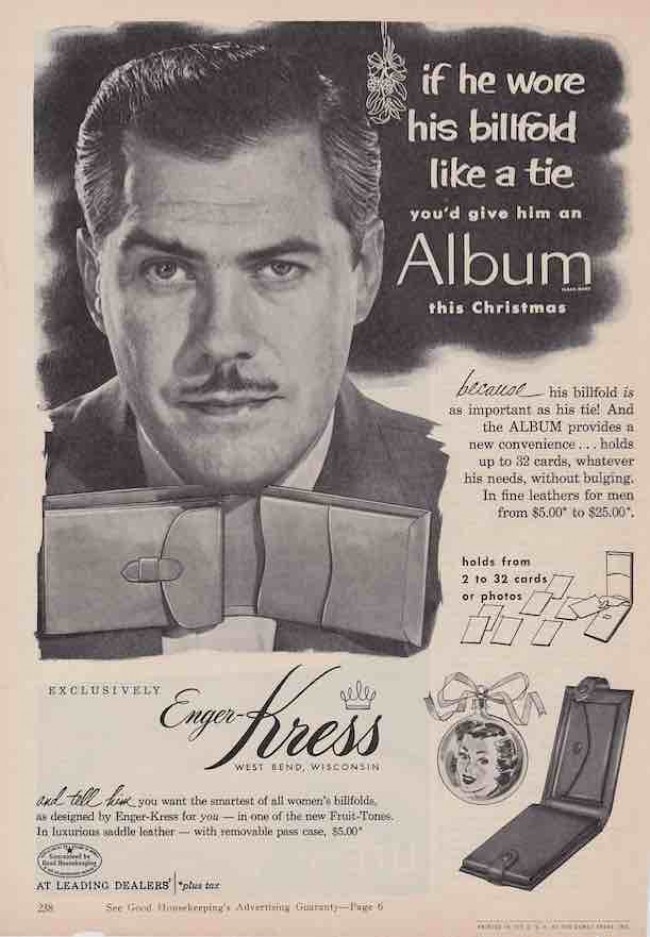
Reminding me of that old proverb, "If billfolds were neckties, publicists would be geniuses."
Scanned from Good Housekeeping for December 1953.
Posted By: Paul - Thu Jun 09, 2016 -
Comments (5)
Category: Business, Advertising, Products, Fashion, Holidays, Surrealism, 1950s
Follies of the Madmen #283
"But, Betty, I can't fit the corpse into the upright model so easily!"
Posted By: Paul - Thu May 26, 2016 -
Comments (13)
Category: Business, Advertising, Products, Death, Appliances, 1950s
Stealing Boosts Staff Morale
Companies do all kinds of things to boost staff morale. They hire motivational speakers, have team-building exercises, give employees gifts, etc.But the industrial psychologist Lawrence Zeitlin, in an article published in June 1971 in Psychology Today ("A little larceny can do a lot for employee morale"), argued that the most effective way a business could boost morale was by allowing its employees to steal a little from the company.
He argued that theft added to a sense of "job enrichment" by making the job more interesting. It gave employees a sense of satisfaction at getting away with it. Also, workers "often looked upon theft as a condition of employment." Furthermore, he noted, allowing the theft could be cheaper than installing elaborate security precautions.
In her book Management and Ideology, business author Judith Merkle provides some background info on Zeitlin's article:
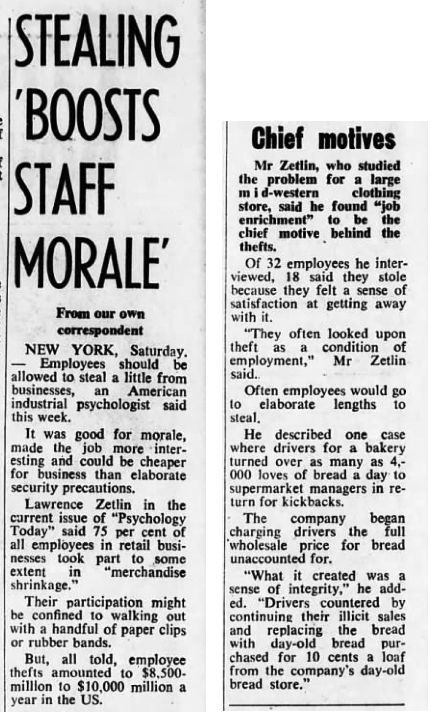
Sydney Morning Herald - May 30, 1971
Posted By: Alex - Wed May 25, 2016 -
Comments (6)
Category: Business, Crime, 1970s

| Who We Are |
|---|
| Alex Boese Alex is the creator and curator of the Museum of Hoaxes. He's also the author of various weird, non-fiction, science-themed books such as Elephants on Acid and Psychedelic Apes. Paul Di Filippo Paul has been paid to put weird ideas into fictional form for over thirty years, in his career as a noted science fiction writer. He has recently begun blogging on many curious topics with three fellow writers at The Inferior 4+1. Contact Us |




